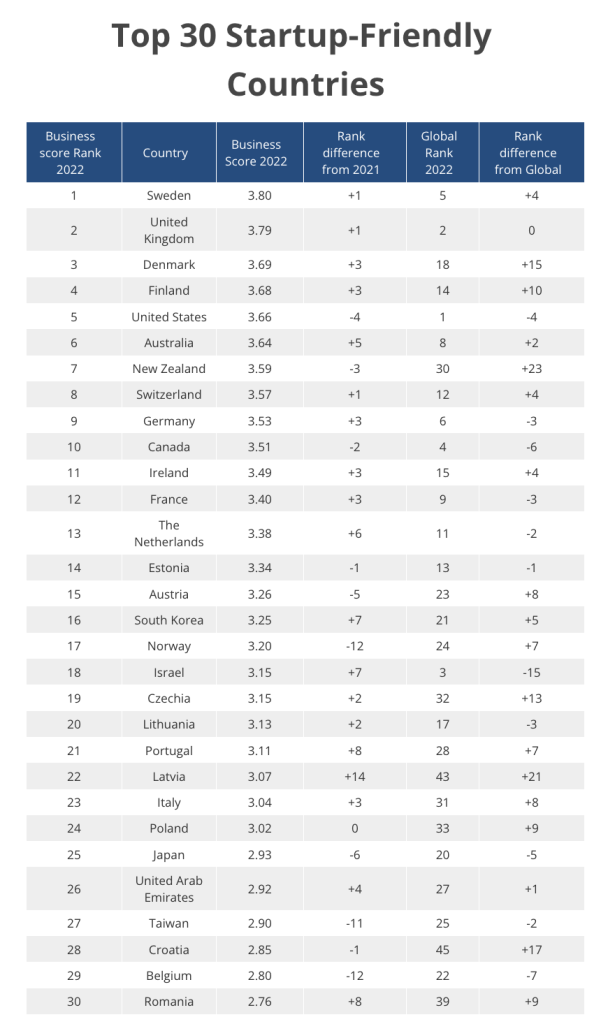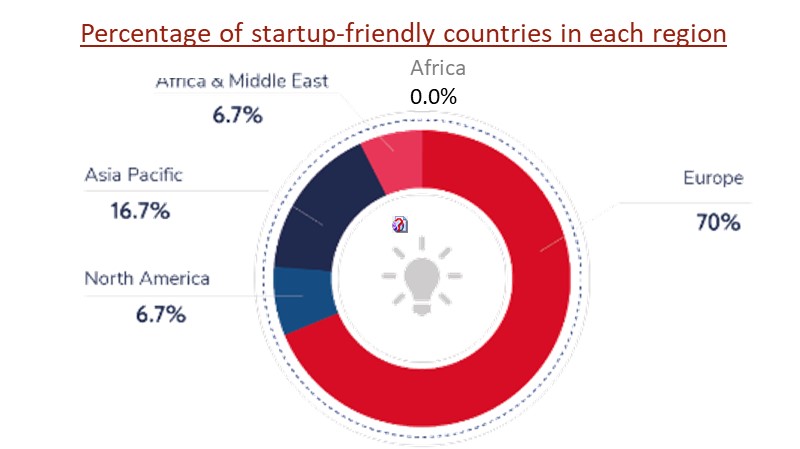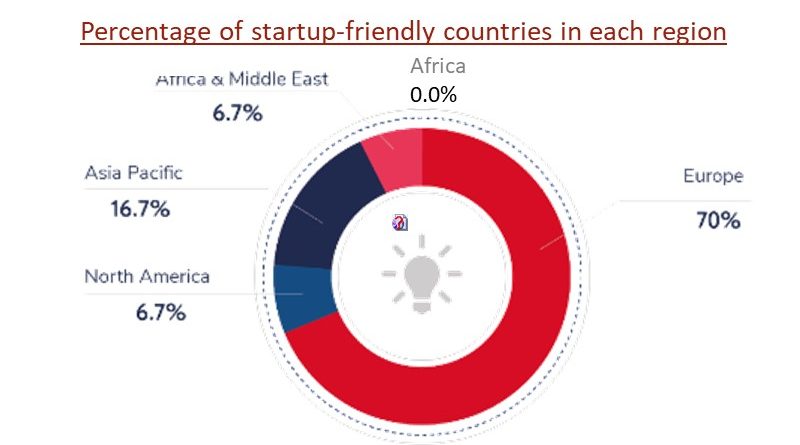Nigeria and other African Countries missing on the list of top 30 Startup friendly countries
Startupblink has released the list of top 30 startup friendly countries and Nigeria and other African Countries are not on it. Europe dominates the list with 21 countries making the cut as top startup-friendly locations while Romania, Portugal, and Latvia have moved up significantly since last year’s startup-friendly countries rankings.

The European region has 21 sites among the top 30 startup-friendly nations, followed by 5 Asian-Pacific, 2 North American, and 2 Middle Eastern nations.

On the expanded list of 100 startup most friendly countries there are however,13 African Countries. South Africa is on rank number 45, Kenya on 62, Nigeria on 64, Egypt 67, Mauritius 73, Cape Verde 79, Morocco 81, Ghana 82, Namibia 84, Tunisia 87, Rwanda 90, Senegal 92 and Uganda 94

Anywhere in the world, starting a business can be difficult, but some nations are able to foster a climate that is more conducive to success. The top 30 nations for startups are highlighted in this in-depth research, which builds on the findings of StartupBlink’s Global Startup Ecosystem Index Report 2022 and uses our “Business Score” to rank them. The score considers variables like internet speed, R&D expenditures, and other important elements that support the growth and success rate of an organization. Sweden, the United Kingdom, Denmark, and Finland were the nations with the best startup environments in 2022. Based on their business friendliness, these top nations for moving your startup are outlined in this in-depth analysis.
The Global Startup Ecosystem Index (GSEI) from StartupBlink rates nations and localities according to how supportive they are of startups. Each ecosystem receives a total score comprised of the Quality, Quantity, and Business Environment subscores.
By calculating the number of companies, coworking spaces, accelerators, and startup-related Meetups in the area, the Quantity score gauges the ecosystem’s level of activity.
The Quality score takes into account the amount of “special entities” that have been created, such as Unicorns (private firms valued at over US $1 billion), Exits (successful acquisitions or initial public offers), and Pantheons, as well as the success of the top startups in an ecosystem (startups that have reached a significant level of success).
The Business Score, often referred to as the Business Environment score, focuses on elements that have an impact on the entire nation, such as national policies, laws, and infrastructure.
StartupBlink takes into account the following factors while calculating the Business Score:
- Diversity Index
- Internet Speed
- Internet Freedom
- R&D Investment
- Availability of various technological services
- Number of Patents per capita
- Level of English proficiency
- Top Universities per location
- Internet Users
- Regulatory Quality
- Innovation Index
- Ease of Doing Business Index
StartupBlink only covers criteria that have a blatantly good or bad impact on a country’s ability to succeed, excluding elements that could have a murky impact. The development of a nation as a startup-friendly environment, for instance, is likely to be hampered by factors like slow internet or internet usage limits, although the cost of living may have both good and negative consequences. Consequently, the Business Score does not take the cost of living into account.
About Startup-Friendliness
As a startup, you want to pick a nation that will help your business succeed. How welcoming a nation is to companies like yours can be determined by looking at its Business Score. With a high Business Score, your firm will have access to fast internet, a welcoming regulatory environment, and well-developed infrastructure, all of which can accelerate its growth.
On the other hand, a nation with a low Firm Score may have challenges that make it challenging for your business to function and grow, such as red tape, bureaucracy, or antiquated infrastructure. If you’re thinking of launching a firm in one of these nations, you might want to carefully analyze the advantages and disadvantages. Working with local authorities to raise the Business Score and foster a more welcoming climate for businesses may be worthwhile in some circumstances. Our counsel to these nations is to concentrate their efforts on enhancing the business climate.
We took into account each nation’s Business Score rank as well as the gap between Business Score Rank and Global Rank as revealed in the GSEI 2022 as we assessed each nation’s startup-friendliness in comparison to 2021. We were able to fully comprehend each nation’s business environment and how it has changed over time by looking at these data.




